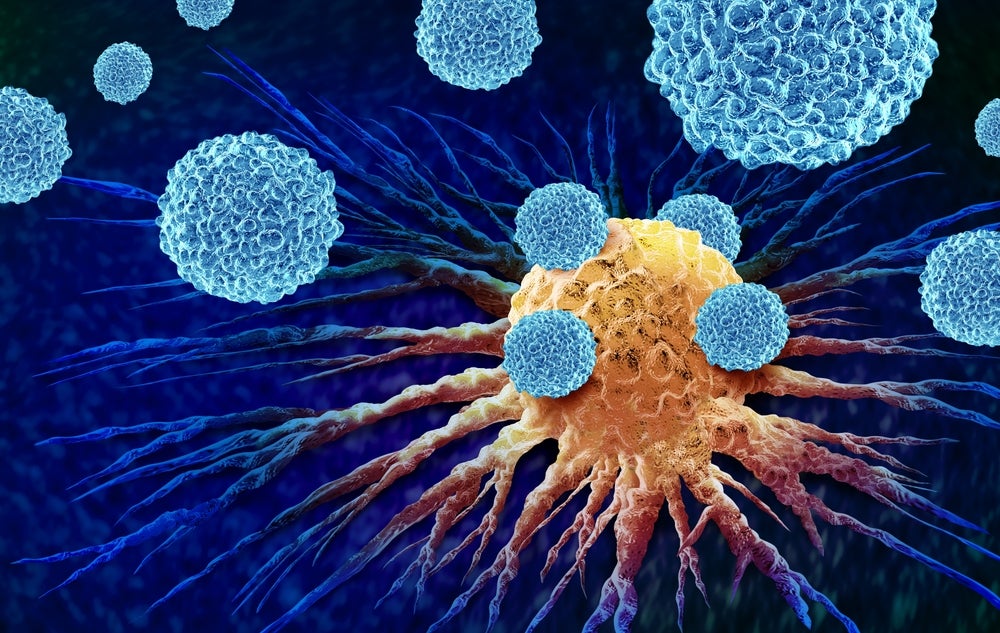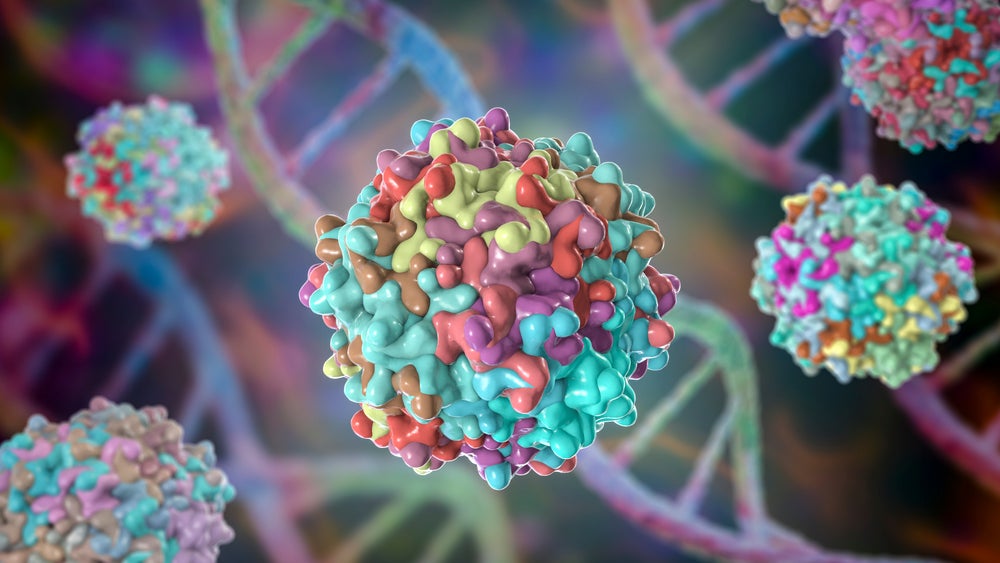The 2024 American Society of Clinical Oncology (ASCO) Annual Meeting kicks off today (31 May) bringing scientists and physicians together to showcase the latest research in cancer therapies.
Amid the whirlpool of data and results being presented at the premier oncology conference, Clinical Trials Arena takes a look at some of the most anticipated late-breaking abstracts being unveiled by pharma companies at the meeting.
New melanoma treatments
As melanoma rates across the world continue to rise, there will be much focus on emerging treatments for skin cancer at this year’s ASCO.
Moderna and MSD’s co-developed mRNA-4157 vaccine the world’s first personalised mRNA cancer immunotherapy for resected melanoma, could be a game changer. The companies previously reported positive data from the KEYNOTE-942 Phase II trial with Keytruda (pembrolizumab) and the vaccine at last year’s annual meeting and will look to prove long-lasting effectiveness as they unveil three-year follow-up data on 3 June (LBA9512).
Earlier today, Philogen announced data from its melanoma candidate in a late-breaking abstract (LBA). The company has a developed cytokine, named Nidlegy (bifikafusp alfa + onfekafusp alfa), to treat fully resectable forms of the cancer with regional skin and/or nodal metastases. From its Phase III PIVOTAL trial, Philogen reported (abstract LBA9501) that its drug led to a median relapse-free survival of 16.7 months compared to 6.9 months in the control group.
GlobalData associate director of oncology and haematology Sakis Paliouras said: “[These] two drugs, which have a novel mechanism of action, would become first-in-class drugs if approved upon positive trial readouts.”
GlobalData is the parent company of ClinicalTrialsArena.
Amgen’s and BMS’ KRAS G12C agents
KRAS activating mutations are the most common genetic alterations in non-small cell lung cancers (NSCLC) – both Amgen and Bristol Myers Squibb (BMS) are showcasing Phase III results from their KRAS G12C inhibitor candidates.
Amgen will report data from the CodeBreaK 300 trial investigating Lumakras (sotorasib) in the treatment of KRAS G12C-mutated metastatic colorectal cancer. The company will look to get Lumakras back on track following a couple of run-ins with the FDA. Though the drug was the first KRAS G12C inhibitor to win accelerated approval in the US, it was denied full marketing approval in non-small cell lung cancer (NSCLC) in December 2023. The FDA has also previously called data from the CodeBreaK trial unreliable at a panel convened to discuss a traditional approval for the drug.
Meanwhile, BMS’ Krazati (adagrasib) has already secured FDA accelerated approval for NSCLC patients harbouring a KRAS G12C mutation and will be showcased in additional results from the KRYSTAL-12 Phase III trial (NCT04685135). The study, which met its endpoint in March this year, compared Krazati to chemotherapy.
BMS will release results from the KRYSTAL-12 trial on 1 June (abstract LBA8509), whilst Amgen will showcase its results two days later on 3 June (abstract LBA3510).
Paliouras said Amgen’s Lumakras in combination with Vectebix could change the standard of care for second-line+ KRAS-mutant colorectal cancer patients while BMS’ Krazati could do that for second-line+ KRAS-mutant NSCLC patients.
Lung cancer blockbusters
AstraZeneca will unveil data from two of its blockbuster drugs – Imfinzi (durvalumab) and Tagrisso (osimertinib) – in SCLC and NSCLC respectively. Imfinzi is being investigated in the ADRIATIC study as a consolidation treatment for patients with a limited-stage form of the cancer. The drug, which generated $4.25bn in sales last year, is already FDA-approved for extensive-stage SCLC.
AstraZeneca will release the results (abstract LBA5) on 3 June, alongside data showcasing how Tagrisso faired in the Phase III LAURA trial in patients with unresectable Stage III epidermal growth factor receptor mutated (EGFRm) NSCLC (abstract LBA4).
Johnson & Johnson’s (J&J) PALOMA-3 trial presentation rounds up the highly anticipated late-breaking lung cancer results. The study pitted a subcutaneous form of Rybrevant (amivantamab) against an intravenous (IV) version, both in combination with Leclaza (lazertinib), in refractory EGFR-mutated advanced NSCLC. The company reported today (abstract LBA8505) that its subcutaneous treatment regimen led to a median progression-free survival (mPFS) of 6.1 months compared to 4.3 months in the IV-administered group. Additionally, the 12-month overall survival was 65% compared to 51% respectively.
Paliouras said: “The Tagrisso results could reshape the Stage III treatment landscape of EGFR-mutant NSCLC patients whereas the Rybrevant results will be essential to the drug expanding its current FDA label.”
Blood cancer watchlist
GSK is having another stab at the US multiple myeloma market with Blenrep (belantamab mafodotin), after withdrawing the drug in the US after failing late-stage study requirements for accelerated approval.
GSK will unveil results from Phase III trial DREAMM-8 (abstract LBA105), which investigated Blenrep in combination with pomalidomide and dexamethasone (PomDex) in patients with relapsed/refractory multiple myeloma on 2 June. The combo therapy is being compared to standard-of-care Velcade (bortezomib) and PomDex.
Pfizer will showcase results from its Phase III ECHELON-3 trial, which tested Adcetris (brentuximab vedotin) in combination with Revlimid (lenalidomide) and Rituxan (rituximab) in patients with relapsed/refractory diffuse large B-cell lymphoma. The company will present results on 1 June.
Rounding off the list is Novartis with its Phase III study of Scemblix (asciminib) in newly diagnosed patients with chronic myeloid leukaemia (CML). The kinase inhibitor is being pitted against standard-of-care (SOC) tyrosine kinase inhibitors (TKIs).
Novartis reported superior major molecular response (MMR) – a measure of how little the CML mutated gene is in the blood – rates in the Scemblix group at week 48 compared to SOC TKIs. Scemblix led to an MMR rate of 67.7% compared to 49% in the control group.










